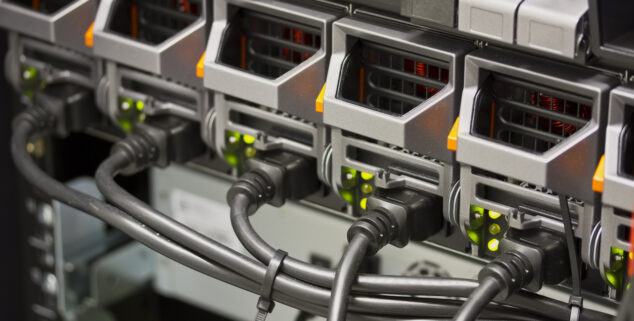Opinion
California must demand higher energy efficiency from data centers
 Power Supplies on blade server in rack. Shot in data center. Image by kjekol
Power Supplies on blade server in rack. Shot in data center. Image by kjekolOPINION – Data centers in California conservatively account for as much electricity as 1.8 million homes today. So, California’s 260-plus data centers must change to reduce the rising competitive demand for water and electricity and the increasing growth in CO2 emissions that artificial intelligence will accelerate in data centers.
California’s SB 1298, now in the Assembly, does not currently add safeguards to ensure that new data center technologies will be energy efficient. The power demand of data centers is expected to grow by 160% over the next six years. That forecast could increase too.
With data deeply foundational to the expansion of AI, this increase in data centers presents a direct challenge to building new housing as energy supply will conflict with the electricity needs of data centers. Yet, technology exists today that could reduce California’s data center energy consumption by 20 percent. That is enough to safeguard and power over 550,000 new homes.
Semiconductor-based flash storage, already the standard for consumer devices like mobile phones, laptops, and cameras, is up to 17 times more efficient at storing data. It can also use one-tenth of the power and take up to 94 percent less space in data centers than its superannuated predecessors.
Most people assume that data centers are entirely based on modern technology. However, in 2024, over 80 percent of digital information still sits in data centers on spinning mechanical hard disk drives (HDDs). This energy-intensive technology, celebrating its septuagenarian anniversary, requires enormous amounts of power, cooling, and space and fails more often than currently available technology.
Despite an anticipated transition from disk to flash storage—given the notable disparity in energy and efficiency alone—recent industry projections indicate that data centers are likely to increase their reliance on these energy-intensive disks. This will undermine the Paris Agreement and Sustainable Development Goals, which require doubling annual energy efficiency improvements by 2030, as pledged by countries at COP28.
A Modern economy needs data centers, but not inefficient ones. Data center expansion has already impacted housing around the world. In London, home building has been impacted and, in Chicago’s suburbs, houses are being razed to make way for data centers.
Additionally, as a major consequence of data center growth in Virginia, the average residential utility bill is expected to increase by more than 100% by 2035. This will be a story that repeats itself across the United States, including here in California, if it is left unchecked.
We must demand more efficient data centers or else their continued growth will place an unsustainable strain on energy resources, impact new home building, and increase both carbon emissions and California residents’ cost of electricity.
As a result, SB 1298 should be amended to require energy efficiency standards to be imposed on data centers. Without an efficiency mandate by the state, California’s energy conservation efforts will be hindered, carbon emissions will increase, and residential electricity prices will likely rise.
Critically, lack of efficiency standards will pit new housing development against expanding data centers. We believe lawmakers need to amend this bill to establish energy efficiency standards for data center performance. A simple mandate could be based on a measurement of maximum watts of electricity used per terabyte of data stored.
California has a history of spearheading innovation and bold environmental action. The time to demand higher energy and carbon efficiency standards from data storage is now. We can create a more sustainable future for our state, where data centers support our growing economy without harming our communities or environment.
California banned new investments in coal-burning power plants 18 years ago and has continuously raised the bar on environmental sustainability. Today, California has another opportunity to lead in environmental and energy efficiency.
We need to balance the increasing energy needs of data centers with society’s needs, ensuring that data centers support our economy responsibly and minimize damage to our communities and environment.
We must continue thinking boldly to leave a better California for generations to come.
Charles Giancarlo is the CEO of Pure Storage, a California-based company headquartered in Santa Clara that is a global leader in data storage and management and is listed on the New York Stock Exchange.
Want to see more stories like this? Sign up for The Roundup, the free daily newsletter about California politics from the editors of Capitol Weekly. Stay up to date on the news you need to know.
Sign up below, then look for a confirmation email in your inbox.

Why can’t data centers expand to more remote areas using dedicated onsite power/cooling sources and satellite communications, thereby reducing the growing competition between data centers expansion and new housing demands for land, electricity and other infrastructure near larger metro areas.